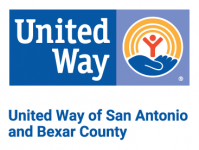Support to Achieve Aims
- Home
- /
- Providers Resources

Families and providers work together to accomplish the goals of developing healthy, happy, and ready kids. The data supports whether the protective factors that they are trying to achieve, and the goals they set, are met.
Strengthening Families Framework
- Parental resilience – Being able to manage stress and function well when faced with challenges, adversity and trauma
- Social connections – Having a sense of connectedness with constructive, supportive people and institutions
- Knowledge of parenting and child development – Understanding parenting best practices and developmentally appropriate child skills and behaviors
- Concrete support in times of need – Identifying, accessing and receiving needed adult, child and family services
- Social and emotional competence of children – Forming secure adult and peer relationships; experiencing, regulating and expressing emotions
How Can Providers Use This Framework?
When families and providers in organizations who work with them are on the same page about the protective factors that they are trying to achieve, they are better able to work together to accomplish these goals. Below are some key resources on this approach for providers who work with, for, and on behalf of children and families:
- Strengthening Families Overview
- Child Welfare
- Home Visiting Programs
- Child Abuse and Neglect Prevention
- Early Care and Education
- Program Self-Assessments
– For Center-Based Early Care and Education Programs
– For Family Child Care Providers
– For Home Visiting Programs
– For Community Based Programs - Growing and Sustainability Parent Engagement Toolkit
- Community Cafés
How It’s Being Used Locally
This framework has been adopted by the United Way of San Antonio and The Bexar County’s Children’s Issue Council’s participating agencies in their home visiting programs, nutrition classes, Play and Learn groups, fatherhood programs, site-based parenting classes, and model classroom activities working with childcare centers and homes. ReadyKidSA partner organizations are encouraged to use this approach in their work, along with other existing evidence- and asset-based practices.
Nurturing Parenting Programs Framework
In addition, the Nurturing Parenting Programs ® framework provides a similar set of protective factors whose programs help build in families. When the 6 protective factors in this framework are established in a family, the likelihood of child abuse and neglect diminishes.
- Nurturing and Attachment
- Knowledge of Parenting and Child and Youth Development
- Parental Resilience
- Social Connections
- Concrete Support Services for Parents
- Social and Emotional Competence of Children
Early Childhood Assessments
Child Assessments
- Battelle Developmental Inventory
Helps measure a child’s progress along this developmental continuum by both global domains and discrete skill sets. BDI-2 is aligned to the three OSEP Early Childhood Outcomes, as well as the Head Start Child Outcomes. It can be used to meet the federal reporting requirements across Part C, Part B/619, and Head Start programs. - Early Childhood Assessment
Assessing Parenting is an online application that scores and records inventory assessments of participants. Agencies can then access profile and program data for reporting and intervention. - GOLD and GOLDplus
Teaching Strategies provides a wide array of assessments for children in any early childhood program. - Lap-3
An ongoing assessment to measure development in children ages 36 months to 72 months of age across 7 developmental domains – Language, Cognitive, Pre-Writing, Fine Motor, Gross Motor, Adaptive (Self-Help), and Personal/Social. - OnlineCOR
A system for various assessment tasks, including outcomes and data for Head Start and other government-funded programs. - PPVT
Offers many enhancements to a vocabulary assessment that has been well respected for 50 years. This latest edition has been co-normed with the Expressive Vocabulary Test, Second Edition (EVT™-2), allowing you to make direct comparisons between receptive and expressive vocabulary performance. - The State of Texas Assessments of Academic Readiness (STAAR™)
The STAAR program includes scheduled annual assessments in specific subjects for students. Students will take their first of these assessments in 3rd grade and will take their last while in high school.
Parenting Assessments
- AAPI
The AAPI-2 is an inventory designed to assess the parenting and child rearing attitudes of adolescents and adult parent and pre-parent populations. Based on the known parenting and child rearing behaviors of abusive parents, responses to the inventory provide an index of risk for practicing behaviors known to be attributable to child abuse and neglect.
Screening Tools
- ASQ
Parent-completed developmental and social-emotional screeners to pinpoint delays in children as early as possible. Other tools such as the ASQ:SE-2 and ASQ-3 can also be found here. - Brigance Screener
Helps early childhood educators more effectively meet the needs of young learners—so each child is better prepared for school.
Teacher/Child Interaction Assessments
- CLASS
Measures teacher-child interactions and helps providers target areas for improvement. This tool assesses factors directly tied to student learning – including positive and negative classroom climate, teacher sensitivity, language modeling, and behavior management. - Environmental Rating Scales
These scales evaluate items such as: physical environment, basic care, curriculum, interaction, schedule and program structure, and parent and staff education. These scales are designed to assess process quality in an early childhood or school age care group.
Additional Resources on Assessments and Screenings
Early Development Instrument
All Early Development Instrument (EDI) content (text, illustrations, graphics, designs, etc.) created by and for the United Way of San Antonio and Bexar County including any EDI data and maps are property of the United Way of San Antonio and Bexar County and require written permission for replication or reproduction in any form. To submit questions or to request permission to use any and/or all content of the Early Development Instrument (EDI) data contact Liza Gomez at lgomez@unitedwaysatx.org.
The Early Development Instrument (EDI) is an assessment completed by teacher in kindergarten to measure their students’ kindergarten readiness in 6 key areas. These are usually administered in the fall or early spring of a child’s kindergarten school year and reported back to the school the following fall.
The following school districts are currently participating in EDI data collection and use:
- Northeast ISD
- Northside ISD
- Southwest ISD
- SAISD
- Edgewood ISD
- Harlandale ISD
Grants
Local Foundations
These local foundations offer grants at various times throughout the year. Check back for an updated list of specific, available grants.
- Genevieve and Ward Orsinger Foundation
- The Gordon Hartman Family Foundation
- The Kronkosky Foundation
- The Najim Family Foundation
- United Way of San Antonio and Bexar County
- The Meadows Foundation
Corporate Funding
These corporations occasionally offer funding for early childhood services. Please check back for an updated list of specific, available grants.
Federal Grants
While typically through large proposal requests, these federal entities offer grants at various times throughout the year. Please check back for an updated list of specific, available grants.
Data
- The State of Children in San Antonio Needs Assessment
- CI:Now
- Children’s Issue Council Dashboard
The United Way’s Children’s Issue Council collects data on early childhood progress in Bexar County, including:
– Demographic characteristics
– Births
– Infant death rate
– Number of child deaths
– Injuries per 1,000 children
– Medicaid eligibility
– Child-care capacity
– Subsidized child care
– Early Childhood Intervention
– Attrition: 9th grade
– Child abuse and neglect
– Homeless - SA2020 Data Dashboard
SA2020 collects data on all 57 indicators identified in the SA2020 Vision to measure progress toward that vision. Related indicators to early childhood can be found in the following SA2020 issue areas:
– Family Well-Being
– Education
– Health & Fitness - San Antonio & Bexar County Health & Demographic Statistics – View Reports
Early Development Instrument
All Early Development Instrument (EDI) content (text, illustrations, graphics, designs, etc.) created by and for the United Way of San Antonio and Bexar County including any EDI data and maps are property of the United Way of San Antonio and Bexar County and require written permission for replication or reproduction in any form. To submit questions or to request permission to use any and/or all content of the Early Development Instrument (EDI) data contact Liza Gomez at lgomez@unitedwaysatx.org.
The Early Development Instrument (EDI) is a population measure of how young children are developing in communities in the United States. The EDI measures five areas of early childhood development:
- Physical health and wellbeing;
- Social competence;
- Emotional maturity;
- Language and cognitive skills, and
- Communication skills and general knowledge.
The United Way of San Antonio and Bexar County is collecting EDI data in partnership with the following Bexar County independent school districts: Northeast ISD, Northside ISD, Southwest ISD, SAISD, Edgewood ISD, and Harlandale ISD.
State
- Interactive Web Data Book Provided by Child Protective Services
- KidsCount
- Texas Education Agency – Early Education
National
- ChildTrends
The DataBank delivers continuously updated trend data, in plain language, with the latest national estimates for all indicators, along with accessible color graphics and tables. DataBank estimates come from reliable sources including federal reports and websites. - National Center for Education Statistics
The primary purpose of the Fast Facts website is to provide users with concise information on a range of educational issues, from early childhood to adult learning. - American Community Survey
This includes general demographics, employment, education, income searchable by city, county, state or national.
Professional Development Resources
- Healthy Child Care Texas
- National Association for the Education of Young Children (NAEYC)
- San Antonio Association for the Education of Young Children
- Texas Association of Administrators and Supervisors of Programs for Young Children
- Texas Association for the Education of Young Children
Local Trainings and Technical Assistance
The following organizations provide a variety of trainings and workshops to early childhood professionals. Some also provide trainings tailored to your organization’s needs and are open to site-based partnerships.
Early Learning
- Education Service Center – Region 20
- KLRN
- Pre-K 4 SA
- San Antonio Public Library
– SAPL Little Red Wagon Trainings - Voices for Children
- U.S. Department of Education – Office of Early Learning
Health & Nutrition
- Any Baby Can
- San Antonio Food Bank
- The Center for Health Care Services
– Mental Health Basics Speakers Bureau
Family Support
Tools for Teachers or Professionals


